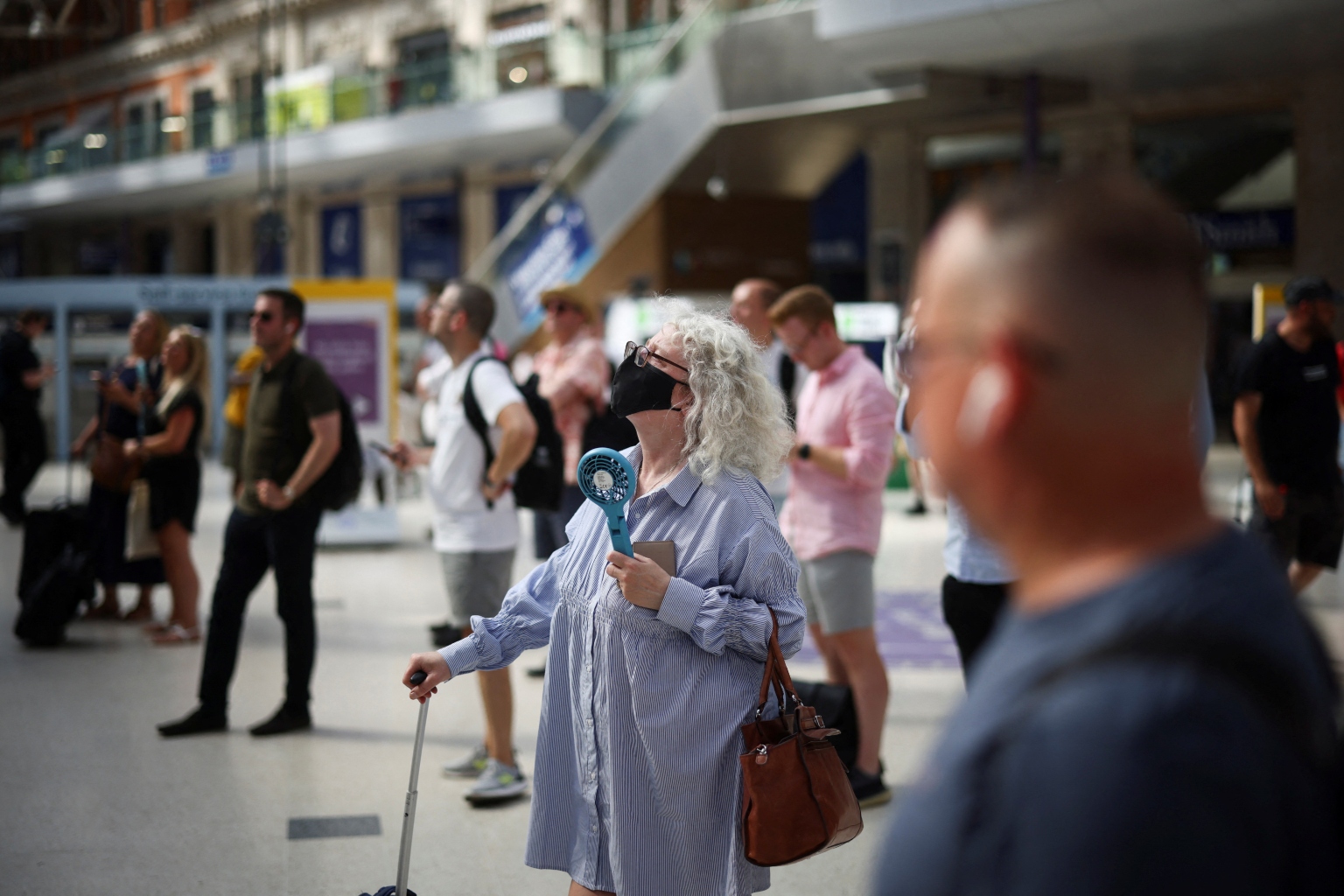High temperatures are raising concerns for Britain's elderly
Sign up now: Get ST's newsletters delivered to your inbox

People cool themselves by a fountain at Trafalgar Square in London, Britain, on July 19, 2022.
PHOTO: EPA-EFE
LONDON (NYTIMES) - As temperatures skyrocketed on Monday (July 18) and Tuesday, concerns for residents of England's nursing homes, often located in older or repurposed buildings without air conditioning, also rose.
Many residential nursing homes, also known as care homes in Britain, are simply not equipped to deal with the extreme heat. Advocates and staff say that greater measures must be taken to protect elderly people. Those older than 75 - whether living on their own or in a care home - are among the most at risk for severe health complications from the heat, according to the UK Health Security Agency.
Ms Helen Wildbore, director of the Relatives & Residents Association, a national charity for older people in care homes and their relatives, said in a statement that the organisation's help line had been inundated with calls in the past week, ahead of the heat wave.
"The last 48 hours have been unprecedented, so that's a massive concern," she said.
The older people the organisation supports often have health issues that make them vulnerable, so even the higher than average temperatures - and just record-breaking ones - that are increasingly experienced in Britain during the summer months can cause a problem.
Most care homes, she explained, are in older buildings that have been refurbished or repurposed. With air conditioning rare, the temperatures inside can climb dramatically, particularly for residents in south-facing rooms.
"This year, as well, it's been exacerbated by the pandemic, with people in lots of care homes still having outbreaks and lockdown - and people during those lockdowns are also confined in their rooms," she said. "If you are in one of these rooms, where you have to draw the curtain to stay cool and remain there, it can feel like a prison."
Many facilities, still grappling with the risk of the coronavirus, had to face the dilemma this week of ensuring the safety of residents facing severe temperatures while also mitigating the threat of infection.
The safety of residents in care homes has been a sensitive issue in Britain. The facilities and the government were widely criticised for failing to protect older people as the coronavirus swept across the nation, with the death toll becoming a national scandal.
Heat-related deaths in care homes have also increasingly been an issue in Britain and elsewhere across Europe.
The UK Health Security Agency urged providers to balance those two risks posed to vulnerable people as temperatures rose, in guidance issued late last week.
There are concerns for staff as well. The Royal College of Nursing warned in a statement to employers that nurses working in care homes, as well as in hospital settings, were at a heightened risk for heatstroke.
As temperatures rose, care homes across England were setting up communal cooling spaces; distributing ice pops for both temperature regulation and hydration, as older people sometimes have a lower fluid intake; and providing novel ways to beat the heat.

At Larchwood Care Home in Manchester, residents enjoyed an outdoor concert from a local marching band as they sat in the shade and dipped their feet in wading pools on Monday, staff said. At Mundy Care Home in Basildon, northeast of London, staff brought the pools inside to residents so they could cool down. And in a precious few other facilities, air conditioning units were brought in.
Mr Toby Speller, director of sales for Cinnamon Care Collection, which manages 19 care homes across England, many in areas most affected by the record temperatures, said all had air conditioning in communal spaces but that a number of the facilities had brought in additional stand-alone units to cool the rest of the building.
"Shade, closing the curtains, that will only get you so far," he said. "For those who are vulnerable who may be struggling with mobility, it's important that we monitor not just their hydration and nutrition but that we know the signs of heat stress. And then that we also keep an eye on each other."


